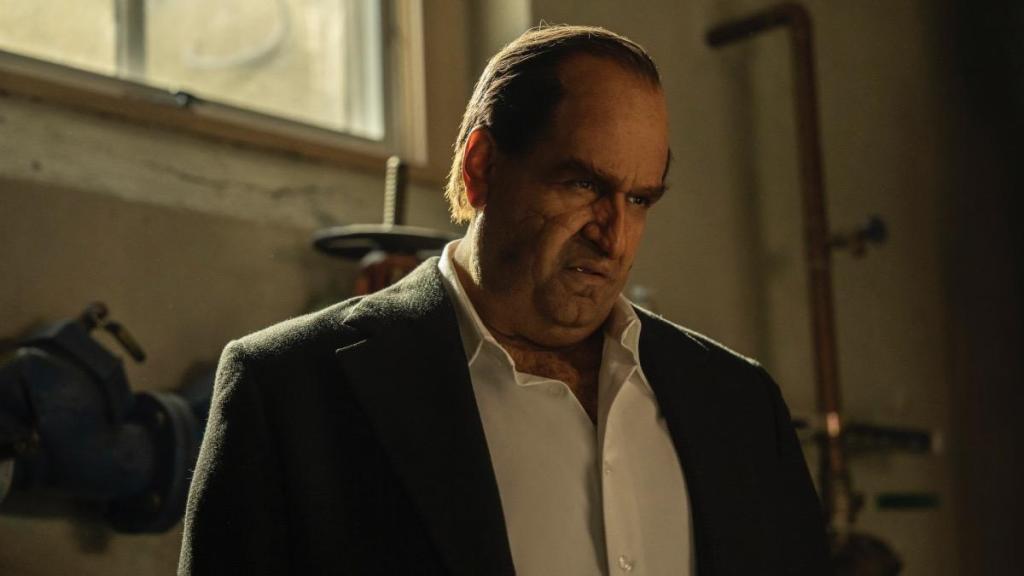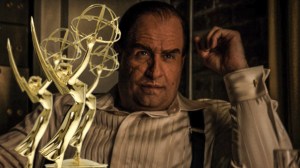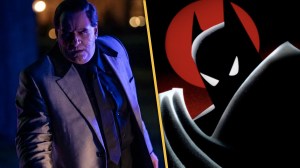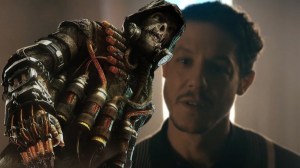For generations, the word “verisimilitude” has hung over the world of comic book adaptations. Richard Donner famously used the concept as a guiding principle for 1978’s Superman movie, arguing that the high-flying and brightly colored protagonist needed to be rooted in a version of reality to effectively translate onscreen. It’s hard to deny that Donner succeeded in that venture, as his film essentially defined the genre, but the concept has become a sort of buzzword in the decades since. Verisimilitude is thrown around in countless arguments about superhero projects that are too dark and gritty, not dark and gritty enough, or stuck in a limbo between the two. This debate crossed my mind frequently while watching HBO’s The Penguin, the newest television extension of the DC mythos. Across its eight-episode season, The Penguin reframes that age-old argument in a beautiful new evolution, delivering one of the most unflinchingly human and entertaining interpolations of a comic in recent memory.
Set shortly after the events of the 2022 film The Batman, The Penguin follows the continued adventures of Oz Cobb (Colin Farrell) as he scrambles for power amid the criminal underworld of the now-shattered Gotham City. As Oz navigates his new reputation, his new criminal schemes, and his home life, he also begins to form an unlikely bond with teenager Victor Aguilar (Rhenzy Feliz). Intersecting with Oz’s quest is Sofia Falcone (Cristin Milioti), a notorious serial killer who grew up as the once-pampered daughter of Oz’s former boss, and who is trying to forge her own path forward after being released from a mental institution.
Videos by ComicBook.com
That description not only scratches the surface of what The Penguin has to offer, but it doesn’t even dwell on the DC lore that surrounds the series. Yes, there are countless comic stories delving into the Falcone family’s chokehold over Gotham City, as well as Oz’s own rise to power within that structure. Yes, Sofia’s institutionalization occurred in the infamous Arkham Asylum. Yes, Oz’s romantic partner, sex worker Eve Karlo (Carmen Ejogo), shares a surname with the Batman villain Clayface. But those comic connections are far from the most compelling or surprising things that The Penguin has to offer, even as fans sniff around for clues about The Batman‘s cinematic sequel, 2026’s The Batman Part II. Any reference to DC canon, from the inclusion of a comic character to a random offhanded reference, flavors the experience of The Penguin instead of being a whole meal. Even the specific flavors that fans have already turned their noses at — namely, shortening Oz’s name from his comic-accurate moniker of Oswald Cobblepot — prove to be inconsequential in context.
That shouldn’t necessarily be a miracle when we’re decades into the world of modern comic book television shows, but it feels like one, especially as The Penguin offers a fundamentally entertaining experience at every single turn. The show subscribes to virtually every single trope fans could expect from a crime drama, delivering brutal violence, countless backroom deals, and a larger sense of grounded stakes. But under the guidance of showrunner Lauren LeFranc, it never gives itself an opportunity to be defined by those tropes, allowing space for a true sense of sincerity. This is abundantly apparent with Oz, whose unique earnestness is on display in his closest relationship, and whose dark aspirations are juxtaposed with awkward quirks and legitimately funny one-liners. It is also astronomically clear with Sofia, whose biting wit and impossibly tragic backstory create a perfect foil to Oz. (Without getting into spoilers, the chapter of The Penguin that dives into that backstory might just be one of the best television episodes of the year, if not in recent memory.) The heartfelt nature of The Penguin not only keeps the series’ story moving, but it proves to be a perfect complement to the larger-than-life vigilantism viewers saw in The Batman. Granted, some fans might grow disappointed by how scattered the moments of high-octane action are, but The Penguin‘s weekly release model should allow space for countless sequences (both big and small) to get the weight that they deserve.
Farrell’s unrecognizable performance as Oz remains as transformative and quirky as it was in The Batman, while evolving into so much more than the countless internet memes and confused social media posts might have suggested the first time around. The series is a character study for Oz in every single sense of the word, building him into a multifaceted, sympathetic protagonist that audiences want to root for, even at his absolute worst. On its own, Farrell’s performance would be enough to singlehandedly carry a show of this venture, which makes it all the more outstanding that The Penguin boasts an equally revelatory performance from Milioti. The actress steals every single scene she is in, as we watch Sofia fall in and out of Oz’s circle and spiral towards her own path of being a criminal mastermind. It’s not only a portrayal fully worthy of Sofia’s bizarre and dark DC history, but easily a career-defining performance from Milioti, whose decades of work on the screen and the stage has been criminally overlooked. Outside of the two leads, The Penguin is still filled with compelling performances, with Feliz’s sweet and overwhelmed take on Victor and Clancy Brown’s excellent take on mob boss Salvatore Maroni being definite highlights.
On an aesthetic level, The Penguin carries the torch of The Batman without ever overdoing certain elements. The team behind Farrell’s prosthetic makeup deserves every award imaginable, delivering a practical alchemy that helps cement Oz as his own unique, scarred entity. The series’ New York sets seamlessly emulate the franchise’s Gotham amalgam of London and Chicago, with subtle expansions in new neighborhoods and set pieces. Cinematographer Darran Tiernan also carries over the gritty dimension of The Batman, while weaving in the occasional vibrant colors that would have seemed out of place in the series’ predecessor. Composer Mick Giacchino, the son of The Batman composer Michael Giacchino, creates a sonic identity that stands on its own without ever feeling too out of place, when juxtaposed with the previous score or with the series’ slew of needle drops (including the best use of Dolly Parton in recent pop culture memory).
Across its eight episodes, The Penguin redefines what verisimilitude can mean in the world of comic book adaptations. The grittiness, violence, and double-crossing that fans would expect from the title are abundantly present, but balanced with a truly heartfelt take on loss, rebirth, and personal agency. The series is not only one of the better crime dramas in recent memory, it is one of the best examples of how to branch out decades of beloved lore.The Penguin is simply a show about people trying to thrive in a world much bigger and weirder than they can even comprehend — a subject that would be universal nonetheless, but transforms into something special with its engrossing performances.
Rating: 4.5 out of 5
The Penguin will premiere on Max on Thursday, September 19th, followed by an HBO premiere on Sunday, September 22nd, with new episodes debuting on both HBO and Max beginning on September 29th.





